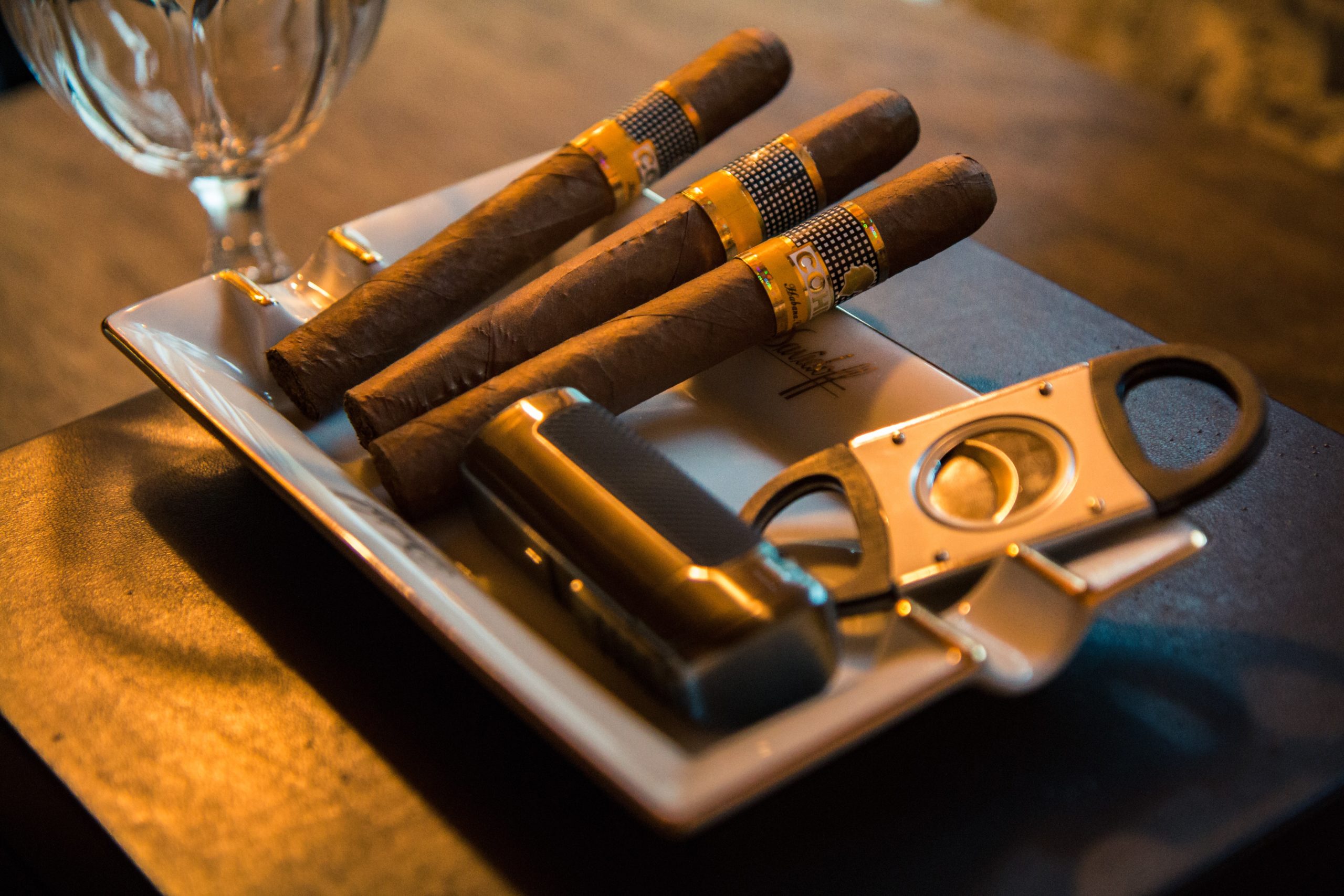On Black Friday, my father cleaned up the garden shed, neatly stacking the bags of cedar mulch, and sweeping up the pine needles which blew in whenever the door was open.
When he finished, he stretched a green, canvas tarp across the middle, shrouding his workbench from view. He’d always been private about his workspace, but the tarp ratcheted that to a whole new level.
“He’s making a Christmas surprise,” Mom said, “for the whole family.” She said it like the whole family was something more than the three of us.
That night, I stood on a straight-backed chair so Mom could adjust the hem on one of Nana’s old petticoats. I’d been cast as an angel in the school pageant and needed a costume.
“What do you want for Christmas?” she asked.
“A brother or sister,” I said.
“You have a sister,” she said, pointing at the picture of Sarah that crowned the mantelpiece. In it, she wore her blue plaid school uniform and beamed a hockey player’s smile. Mom put that photo there two and a half years ago, after cutting it from the duplicate she gave to the detective.
“Right.”
I jumped off the chair, embarrassed and frustrated by the upside-downness of it all. Two and a half years had unraveled since Sarah disappeared. Thirty months. More than nine hundred days. I could barely admit to myself the reality of what that timeframe meant, let alone explain it to my mother.
“We’re going to find her,” Mom said, her voice veering into a familiar shrillness that made me nervous. “John, tell Lindsay that we will get Sarah back.”
My father swished the ice in his bourbon and slammed his hand harder than necessary on the stainless steel handle of his cigar guillotine.
I thought of that line from The Little Prince, “Grown-ups never understood anything by themselves.”
*****
I waited at the top of the stairs until Mom said I could come down. I looked under the tinsel-cloaked tree, searching for my father’s secret even though I knew I wouldn’t like it.
“Try the dining room,” Mom said.
On the table was an ornate, wooden dollhouse, a three-story Victorian, similar to the one we lived in. I said I loved it because everyone was watching me. Sarah was the one who’d really wanted it; we’d seen a similar one in a shop window on Washington Street, right before she disappeared.
Still, I could admire my father’s effort. He had painted it the same clash of purple and green that adorned our moldings and gingerbread. There was even a garden shed like ours. The main house had real electric lights and the books on the shelves had individual pages. Mom handed me a magnifying glass and what looked like squiggles to the naked eye transformed into poetry.
I lifted off the roof of the garden shed to peek inside. To my surprise, it was empty instead of being filled with my father’s clutter. This one void in his attention to detail disturbed me so much that I hastily dropped the roof back in place and fiddled with a light switch inside the main house to hide my discomfort. Its rooms felt oddly empty despite their elaborate furnishings.
“Doesn’t anyone live here?” I asked.
My father pulled out a cigar box. Inside were six separate compartments lined with velvet, a doll in each. It reminded me of Nana’s viewing and how plastic she’d looked in her coffin, her make-up done professionally instead of the simple streak of lipstick she normally rubbed into her cheeks for blush.
The dolls’ eye sockets were the weighted kind, so the lids were closed. Even so, I knew they were us, plus a slightly older version of Sarah, teeth grew in, and breasts starting to bloom under her sweater. On the far right of the box were two boys, a little smaller than the replica of me. I assumed they were the twins who hadn’t lived to join us, but when I turned to Mom for confirmation and reassurance, I discovered she’d left the room.
I let the lid of the cigar box slam shut. My father stood too close, peering over my shoulder. His beard scratched my cheek and I could smell the caramel-vanilla scent of bourbon on his breath even though it was early for him to be drinking.
“You asked for a sibling,” he said. “I’ve given you three.”
*****
Christmas night, my father moved the dollhouse to my bedroom and set it up on a card table with a green top. Mom stepped back to admire it.
“The doll Harringtons have such a beautiful lawn,” she said.
She covered the whole thing with a sheet to protect it from dust. “Don’t take that off unless you’re going to play, okay?”
I nodded. She kissed me goodnight, her lips cold and dry against my forehead.
Moonbeams bleeding through the curtains gave the covered house a ghostly aura. Its shadow stretched all the way up the wall. I didn’t want to see it looming over me so I hovered under my quilt with a flashlight, drawing in my sketchbook.
When I heard the voices, I thought my parents were talking downstairs. It sounded just like them. But then I heard Sarah, wispy, slightly sibilant, and the shock of her voice jolted me upright.
I looked for her in the dark corners of the room, checked under the bed and in the closet. I peeked out the window to see if she was in the yard below even though it was obvious there was just one place that voice could have come from.
Lights glowed a dull orange beneath the sheet covering the dollhouse. A ball bounced and glass crashed. Mom spoke in a way that made me think she was admonishing someone, but her tone held a lightness that had vanished along with Sarah.
Trembling, I folded back the sheet and studied the family gathered in the dining room.
One of the boys rested his feet on a basketball under the table; the other had spilled milk and was dabbing at it with a napkin that pulled apart into saturated gobs. I named them Mike and Timmy. In the cemetery behind our church, on the gravestone next to Nana’s, it just said Baby Boys Harrington, but now that they were here, moving, I thought they should be defined.
Sarah scooped mounds of macaroni and cheese from a serving platter Mom held in front of her. I salivated as I imagined the smell of the bacon-laced breadcrumbs that topped it, and when the doll Lindsay shoved a heaping spoonful between her lips, I swore I tasted its creamy goodness. It had been so long since I had it. Mom stopped cooking when Sarah vanished. Even my dollhouse father sipped his favorite bourbon from a squat tumbler.
If the dollhouse Harringtons could see me, they didn’t let on. I strained to understand their high-spirited conversation, but the words were indistinct, as if a thick pane of glass had been suspended between me and what my family could have been.
*****
We were approaching three years without Sarah. Nana, too, but no one ever talked about that. Nana’s departure was definitive, natural. It was Sarah’s open-ended vanishing we couldn’t process.
The detective asked us to do one last press conference. We’d done one each year because he said anniversaries were significant, that a press conference could trigger someone to realize they had information they didn’t even know they had. I wondered how he knew that, since Mom said crime was rare where we lived, said it was ironic this had happened here and not when we were living in “the urban warzone.” I felt bad for this droopy-eyed man. I could see the kidnapping weighed on him, that his inability to solve the crime of the century in our small town had called into question his self-worth as an investigator.
“It’s possible,” the detective said, “that after so much time, Sarah trusts her abductors. She could be suffering from Stockholm Syndrome, kind of like Patty Hearst.”
“My daughter is not a criminal,” Mom said.
“Of course not. I only said that to show how someone can be so comfortable with her captors that she wouldn’t try to get away.”
Mom agreed to one last press conference. The detective said he’d have an artist mock up what Sarah might look like now, that girls change a lot in three years.
Mom burst into tears.
“You should go,” my father said to the detective. “You should stop coming here and upsetting my wife.”
“I’m just trying to find your daughter, sir,” the detective said, a slight sharpness in his voice that I didn’t know how to interpret. He tried to make eye contact with Mom, but she pressed her hand against her mouth and turned away to pull herself together.
*****
Despite my initial reservations, I grew enamored with the dollhouse. As far as I could tell, the dolls only became animated in my presence. Even though they never acknowledged me directly, I liked the implied collusion, liked being the one chosen to know their secret lives.
Each day after school, I raced off the bus and up the stairs to observe my alternate, joy-filled existence. The dollhouse was the perfect TV sitcom where I was both the star and an eager participant in the live, studio audience.
Nana never visited the dollhouse, but there were clues that she, too, had been resurrected in this other universe. On my birthday, the doll Lindsay wore a new sweater. It was hand-knit from a yarn I’d admired years ago, when I found skeins of it in a trunk in Nana’s sewing room.
Dollhouse Lindsay had a birthday cake, a homemade one with butter cream frosting. I waited anxiously as her fork plunged into the moist slice and crumbs flecked the tablecloth. Her cake must have tasted better than the stale Entenmann’s Mom served me since nothing else was left at the Wawa by the time she’d remembered what day it was.
When spring came, my doll father planted roses and marigolds. He made a vegetable garden with tomatoes and pumpkins, and scratched at his beard while he inspected the results. Sometimes, Mike and Timmy picked a squash and played football with it until Mom called them for dinner or until the squash shattered from one too many dropped passes.
One Saturday, I heard hammering. My father and brothers were working on something in the garden shed. Sarah lay on her bed reading. She wore headsets to block the noise, and a scowl creased her tiny forehead.
Mom and I were nowhere to be seen. I wondered if we were visiting Nana, if her cancer had been diagnosed yet, if it would ever be diagnosed in this Bizarro World whose rules I had not yet deduced.
There was shouting inside the garden shed and the buzz of the saw halted. My father dragged Mike into the house by his elbow and scrubbed a gash on his arm with the green bar of soap Mom kept in the laundry room.
Timmy took advantage of the distraction and raided the Aunt Jemima cookie jar that came to us from my father’s side of the family. When my father saw the crumbs on Timmy’s tee-shirt, he yelled. I could tell by his sheepish look and the way he passed a cookie to Mike that he’d been ordered to share.
I felt stupid when I started to cry, but trying to stop only made the tears come faster. I didn’t want to see the seeds of imperfection in my doppelganger family.
*****
The press conference took place in our living room. I told the detective that the artist’s drawing looked exactly like my Sarah doll.
“Doll?” the detective said and when I nodded, he asked if he could see it.
My father intercepted me on my way upstairs. “Not now young lady. Your mother needs you.”
“But I–”
“Not now, Lindsay.”
I looked at the detective and shrugged.
“You can show me later,” he said.
I stood between Mom and an easel that had a giant-sized blow-up of Sarah’s school picture juxtaposed against the drawing. Some of the television crew looked back and forth at me and the photo. I knew what they were thinking.
Just a week ago, a new neighbor stopped by to introduce herself and admired my portrait on the mantle. I couldn’t blame her for the confusion; Sarah’s school photo was at center stage. I hated that picture, hated how it reminded me I’d lapped my big sister in age.
Like the other press conferences, Mom told the story even though she wasn’t around when Sarah went missing. The two of us were in Pennsylvania getting Nana’s house ready to sell.
Mom told the TV camera that my father was in the garden shed, fixing a fan at his workbench, and Sarah was in the driveway, playing tennis against the side of the house. When my father came out, Sarah’s racket was there, but she was gone.
Just gone.
Mom told the story carefully, keeping her eyes on the camera, never once glancing at me or at my father, who stood a little bit away from us staring out the window at the dark brown square that would soon blossom with our vegetable garden. She told the story without accusation, but I couldn’t help thinking things would have been different if we’d been home.
In earlier years, I thought everything would have been fine if I’d been in the driveway as well, that two would be harder to take than one, that one of us could have run for help or gotten a license plate number.
But this time as I listened, I moved past my guilt and blamed my father. He was there; he should have done something. I couldn’t articulate what that something was. I just knew it was his fault.
*****
After the press conference, we went to Denny’s. None of us were hungry, but we had to get out of the house. I got the fried chicken kids’ meal and Mom didn’t lecture when I only ate the crunchy bits of skin and batter.
When I went to sleep, I had a nightmare about a warm fog that smelled like caramel and cedar and pine. It steamrolled over me, blowing smoke and vanilla down my throat, tugging at my breath. I was sweaty and cold, pinned under crushing weight. Yet floating.
I woke up crying in my father’s arms, his beard wiry and harsh against the soft, tender skin of my neck. Hushed reassurances were bookended by urgent sh’s.
I was positive I hadn’t called out for him.
Over his shoulder, I saw Sarah on the widow’s walk of the dollhouse. Her fists clenched the banister, her knuckles sharp and white in the moonlight. She stared right at me. It was the first time any of the dollhouse Harringtons had acknowledged a presence outside of their model universe.
*****
The days after the press conference dragged by like the last days of school. Mom didn’t complain when I brought my sketchbook to the breakfast table. Her eyes were puffy and red and I kept my eyes firmly on the page, pretending I hadn’t noticed. No one came forward with new information.
Sometimes, intending to be kind, people said at least we still had hope. I no longer believed hope was good. In fact, I knew from watching Mom that it was cruel, clawing into you and refusing to let go, a suicidal parasite that ate its host from the inside until the last bits of life bled out.
Mom threw the sheet over the dollhouse when she was straightening up my room and I didn’t take it off. I resented how it mirrored a life I couldn’t have. As if sensing this, the dolls quieted. I no longer heard cheerful voices careening around the wooden rooms; the lights stopped working or weren’t turned on.
I went to school like everything was normal, but I stopped doing homework. Instead, I drew on a pad of newsprint that I hid in my stack of notebooks and worksheets. I stopped eating, but no one noticed. When I went to bed, I locked my door, hoping to keep the fog at bay. Sometimes I heard it rattling the doorknob and scratching at the jamb.
I drew in bed, fighting sleep in case the fog seeped past the threshold. In spite of my resolve, each morning I discovered I’d nodded off somewhere during the night’s darkest hours and the weight of my head creased the pages of my sketchbook.
Sometimes, I was certain I could smell the fog on my sheets and in my hair.
*****
The detective dropped by unannounced. From my room, I overheard my father say Mom was picking up dinner at the Italian deli.
“That’s okay,” the detective said. “I actually came to see Lindsay.”
I headed downstairs.
“She’s with her mother,” my father said and seemed genuinely surprised when I appeared on the landing.
“I want to see your doll,” the detective said. “The one you told me about at the press conference.”
“Sure,” I said and went upstairs to get it even though I couldn’t imagine what it had to offer.
When I uncovered the dollhouse, Sarah wasn’t in her room. Dollhouse Lindsay sprawled across Sarah’s bed, no longer animated, but an ordinary doll who happened to look a lot like me.
I moved her to her own room, but was surprised to find myself already there. It was Sarah I held in my hand, aged backwards to just before she disappeared. I stood stunned and confused, wondering what new witchcraft had taken hold within the house’s thin wood walls.
My dollhouse parents were in the kitchen, poised over their coffee cups, motionless. They, too, had been subjected to a reversal. At their age, the changes were more difficult to discern. I could only tell because my father was clean-shaven; he hadn’t grown a beard until after Sarah went missing.
My heart folded in on itself when I realized what this might mean for Mike and Timmy. Frantically, I searched for them, checking all the rooms and lifting the roof off the garden shed. I even looked under the card table, but I knew they were gone. Not gone in the menacing way that Sarah had vanished, but gone in the sense that, like in my real world, they never truly existed.
I thought of the detective waiting for me downstairs and didn’t know what to do now that the doll I’d described no longer existed. I locked the door and crawled into bed.
*****
My teacher, Miss Scott, sent the letter home in a sealed envelope. When I tucked it into my bookbag, I realized my sketchpad was missing. I searched my cubby, and my desk, and the classroom coat closet even though I hadn’t worn a jacket in weeks. My pad of newsprint was nowhere to be found.
Mom’s hand clenched the phone tightly as she dialed. She spoke briefly with the principal and wrote an appointment on the calendar. She circled the date and the six melded with her circle, looking like a target.
My father was working late and, when Mom hung up the phone, she announced we were having a girls’ night. We walked to the video store and she let me pick. She let me choose the ice cream, too. For the first time in forever, she made dinner, the bacon mac and cheese I loved so much.
I saw her crying during the movie even though it wasn’t sad, and when she saw me looking, she pulled me close, letting me lay my head in her lap. She stroked my hair and ran her fingertips lightly over the bones of my face, the way she used to before Sarah disappeared.
The next morning, my father slammed his fist on the table with such force, the orange juice slopped out of our glasses.
“What a bunch of bull,” he said. “No kid of mine needs their head shrunk.”
I thought of the shrunken apple dolls I used to make with Nana and replayed those memories so I didn’t have to listen to my parent’s fight.
Mom drove me to school, and I was silent the whole way. I’d never been in trouble before, never been in the principal’s office for any reason. I stared at the latch on the glove compartment, wondering if whatever magic brought my dollhouse to life could shrink me so I could hide behind the owner’s manual and the ancient packets of ketchup.
In the parking lot, Mom explained I was going to see the school psychologist. She said a psychologist was like a doctor for your thoughts.
“I didn’t know my thoughts were sick,” I said.
“They’re not,” Mom said. “You can go to a doctor even if you aren’t sick. Like when you go to Dr. Flannery before school starts, just to get a check-up.”
I didn’t want to think about why my thoughts might need a check-up.
Mom had to wait outside the nurse’s office. The psychologist was younger than Dr. Flannery and our dentist, Dr. Leon. Instead of a lab coat, he wore jeans and a polo shirt.
I had to look at inkblots and say what I saw. I said I saw ink.
“What else?” the psychologist asked.
I thought hard. I wanted to say the fog, but I couldn’t. So I said a dog. And then I said maybe a Halloween mask, a monster of some sort.
“Do you like Halloween?”
I shrugged, and he made a note.
“Do you know why you’re here?” he asked.
“Because Sarah’s missing?”
“Sarah’s disappearance is very important and sad,” he said. “But that’s not why your teacher was worried. Can you think of anything that happened that might make Miss Scott worry?”
I shook my head. I liked Miss Scott and I thought she liked me. Sometimes she let me stay in at recess and play the piano in our classroom. I’d never taken lessons, but Nana had taught me how to read music and Miss Scott said I was good. I hated to think I’d disappointed her.
I shifted in my chair. It was a grown-up’s chair and my feet didn’t quite reach the floor so I crossed them under me. I was starting to sweat and could smell the damp wool of my uniform. I shook my head again even though I hadn’t been asked any more questions.
The psychologist reached behind the desk and brought out the pad of newsprint I thought I’d lost. How did he get it?
He set it on the desk and started to turn the pages. I shook my head a third time because he was getting close to pictures I’d never meant for anyone to see.
“Can you tell me about this?” he asked, pointing to a sketch of the fog.
“Who is this?” he asked when I stayed silent. “Who does this to you?”
I cried and said I wanted to go home. But I didn’t want to. I just didn’t want to be in that office.
*****
That night, I heard the dolls for the first time since the fog. I put the pillow over my head and tried not to listen, but even that didn’t block the sound.
Dishes clanked and voices came from the breakfast room. As they overlapped and intertwined, I realized it was just Sarah and my father. Were Mom and I at Nana’s? Was this the day Sarah disappeared? I had to look, even though I didn’t want to.
By the time I got my courage up, the voices had stopped. My hands left sweat streaks on the sheet when I folded it back. I checked all the rooms and saw no one.
There were noises coming from the garden shed, sounds of a struggle, and a shriek from Sarah. I couldn’t bring myself to lift the roof. I could imagine what was happening.
When the shed door creaked open, my father emerged carrying Sarah, one arm under her knees, the other under her shoulders, like in those photos of firefighters carrying victims from a burning building. She was limp and her head lolled against his arm.
My dollhouse father made eye contact with me. Even in such a small size, he was menacing. I felt, sweaty and cold, crushed but floating, just like the first night the fog had come. I tried to avert my eyes, but couldn’t.
Then, he carried Sarah to the edge of the card table, and let go.




